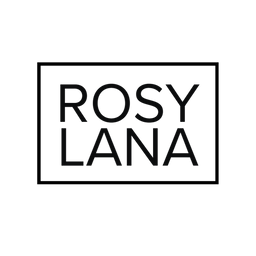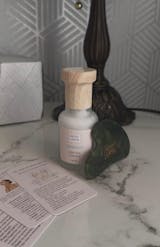Reishi Mushroom: A Hydrating and Protective Powerhouse
Why Reishi Is Trending
Reishi, also known as lingzhi, is a medicinal mushroom packed with triterpenoids, polysaccharides and phenolic compounds. A 2022 pharmacology review notes that Ganoderma lucidum contains biologically active compounds that support immune function and exhibit antioxidant, anti‐inflammatory, antifungal and antimicrobial properties 1. These actions make reishi extract attractive for skin health and resilience.
Research‐Proven Skin Benefits
-
Boosts Hydration and Strengthens the Skin Barrier.
In a 2022 study, model body‐wash gels containing 1 % reishi extract improved skin moisture levels by 350 % after three hours, whereas a base gel decreased hydration 2. The same study found that reishi extracts reduced transepidermal water loss (TEWL) by about 8–11 % compared with the control, indicating better barrier function 3. Researchers credited these effects to hydroxyl‐rich bioactive molecules that retain water and limit evaporation 4.
-
Non‐Irritating and Gentle on Skin.
The washing gels with reishi extract showed no cytotoxic effects on human skin cells and reduced the irritant potential of the base formula by about 20 % 5 6. This makes reishi suitable even for sensitive skin types.
-
Accelerates Wound Healing.
Reishi’s benefits go beyond daily hydration. In a 2020 mouse study, Ganoderma lucidum spore oil significantly accelerated skin burn wound healing and modulated the skin microbiota. The oil decreased lipopolysaccharide (LPS) levels and toll‐like receptor 4 (TLR4) expression, reducing inflammatory cytokines and promoting faster epidermal regeneration 7.
Takeaway for Natural Beauty
Reishi’s ability to hydrate, calm inflammation, support the skin barrier and aid wound healing makes it a versatile ingredient for moisturizers, cleansers and serums. Its antioxidant and anti‐microbial compounds help defend against environmental stressors and breakouts 1, making it a holistic choice for radiant, resilient skin.
Kojic Acid: The Gentle Brightener for Hyperpigmentation
Origin and Mechanism
Kojic acid is an organic acid produced during the aerobic fermentation of fungi such as Aspergillus flavus, A. oryzae, A. parasiticus and A. tamarii 8. It is widely used in natural skincare as a skin‐lightening agent. Kojic acid inhibits the copper‐dependent enzyme tyrosinase, which is essential for melanin production; by binding copper ions, it prevents activation of tyrosinase and thereby reduces melanin formation 9. Because of this mechanism, it is considered one of the most effective natural agents for treating hyperpigmentation 10.
Evidence for Skin‐Lightening
-
Clinical Improvement in Hyperpigmentation.
A 2023 hyperspectral imaging study treated 12 women with 3 % kojic acid solution for post‐acne hyperpigmentation. After the treatment series, skin brightness increased significantly—the median facial brightness rose by 15.5 units, and 75 % of patients experienced a measurable increase 11. Skin contrast decreased and homogeneity improved in most participants, showing a more even complexion 12.
-
Targets Tyrosinase and Melanin.
Laboratory research confirms that kojic acid reduces melanin in cultured cells by inhibiting tyrosinase activity without harming cell viability at concentrations of 43.8– 700μM 13. This demonstrates its efficacy in reducing pigment production while remaining relatively gentle on skin.
Additional Dermatological Benefits
Beyond lightening dark spots, kojic acid exhibits antifungal and antimicrobial activity, which can help manage acne and post‐inflammatory marks 14. It also has antioxidant properties that reduce free radicals and may indirectly support collagen synthesis 15. These multipronged actions make kojic acid a valuable ingredient for addressing dullness, uneven tone and the signs of photoaging.
Safety Considerations
While kojic acid is effective, concentration matters. The Cosmetic Ingredient Review board approves kojic acid for skin‐lightening at 1 % or less 16. Higher concentrations (up to 2 %) may still be safe, but some individuals can experience contact dermatitis or increased sun sensitivity, so performing a patch test, using sunscreen and following professional advice is essential 17.
Synergistic Skincare: Why Combine Reishi and Kojic Acid?
When formulated together in organic skincare products, reishi extract and kojic acid deliver complementary benefits:
-
Hydrate and Brighten.
Reishi’s polysaccharide‐rich extracts deeply hydrate and improve barrier function 18, while kojic acid gently fades hyperpigmentation 11.
-
Combat Oxidative Stress.
Both ingredients provide antioxidant protection—reishi through its triterpenoids and polysaccharides 1 and kojic acid via free radical‐scavenging activity 19 —helping to shield skin from environmental aggressors.
-
Reduce Inflammation and Irritation.
Reishi’s anti‐inflammatory compounds soothe the skin 1, and kojic acid’s antimicrobial properties may calm acne‐prone or sensitive skin 14. Studies show that adding reishi extract to cleansers lowers their irritant potential 5 6, making it an excellent partner for active ingredients like kojic acid.
Final Thoughts
Organic reishi and kojic acid are two evidence‐backed natural ingredients that address multiple skin concerns. Reishi extract hydrates deeply, reinforces the skin barrier and calms irritation, while kojic acid targets excess pigmentation and provides antimicrobial and antioxidant benefits. Together, they offer a comprehensive, research‐supported approach to achieving a brighter, healthier complexion using natural skincare. Always choose formulations from reputable brands, adhere to recommended concentrations and consult a dermatologist if you have sensitive skin. With proper use, these powerful botanicals can reveal radiant, even‐toned skin.
1 Antioxidant, antibacterial, antitumor, antifungal, antiviral, anti-inflammatory, and nevro-protective activity of Ganoderma lucidum: An overview - PMC
https://pmc.ncbi.nlm.nih.gov/articles/PMC9353308/
2 3 4 5 6 18 Assessment of Cosmetic Properties and Safety of Use of Model Washing Gels with Reishi, Maitake and Lion’s Mane Extracts - PMC
https://pmc.ncbi.nlm.nih.gov/articles/PMC9412612/
7 The effect of Ganoderma lucidum spore oil in early skin wound healing: interactions of skin microbiota and inflammation | Aging
https://www.aging-us.com/article/103412/text
8 9 10 11 12 Evaluation of the Reduction of Skin Hyperpigmentation Changes under the Influence of a Preparation Containing Kojic Acid Using Hyperspectral Imaging—Preliminary Study - PMC https://pmc.ncbi.nlm.nih.gov/articles/PMC10094916/
13 Kojic Acid Showed Consistent Inhibitory Activity on Tyrosinase from Mushroom and in Cultured B16F10 Cells Compared with Arbutins - PMC
https://pmc.ncbi.nlm.nih.gov/articles/PMC8944748/
14 15 16 17 19 What Happens to Your Skin When You Use Kojic Acid? verywellhealth.com/kojic-acid-11730042





